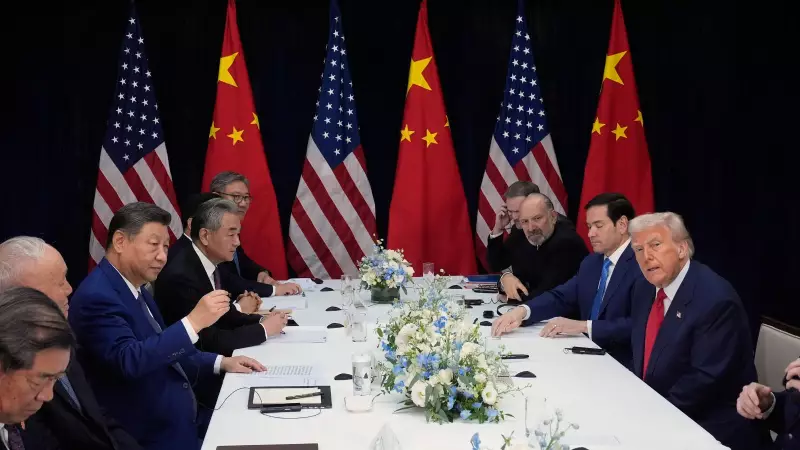
In a startling revelation that sheds new light on US-China relations during the Trump administration, a former White House official has disclosed that Chinese officials displayed unprecedented levels of fear when dealing with President Donald Trump.
Miles Yu, who served as China policy advisor to former Secretary of State Mike Pompeo, made these eye-opening comments during a recent television interview, describing the dynamic between Trump and Chinese President Xi Jinping as particularly fascinating.
The Fear Factor in Diplomacy
According to Yu's observations, Chinese officials appeared genuinely intimidated by Trump's unconventional approach to diplomacy and negotiations. "I've never seen men so scared," Yu remarked, highlighting the psychological impact Trump's style had on Beijing's representatives.
This fear stemmed from Trump's reputation as an unpredictable negotiator who wasn't bound by traditional diplomatic protocols. Chinese officials, accustomed to more predictable American counterparts, found themselves navigating uncharted waters with a president known for his bold moves and willingness to disrupt established norms.
The Trump-Xi Dynamic
Yu described the relationship between the two leaders as particularly noteworthy. Despite the apparent tension at the official level, Trump maintained what he described as a "very good relationship" with President Xi Jinping personally.
This paradox highlights the complex nature of international diplomacy, where personal relationships between leaders can coexist with institutional tensions between their governments. The Trump-Xi dynamic represented a unique case where personal rapport didn't necessarily translate to smoother intergovernmental relations.
Implications for US-China Relations
The revelations come at a critical time when US-China relations remain tense on multiple fronts. Yu's insights provide valuable context for understanding how different leadership styles can dramatically impact international negotiations and geopolitical dynamics.
The fear factor described by Yu may have influenced Chinese decision-making during key negotiations, potentially affecting outcomes on trade, technology, and security matters. This psychological element in diplomacy underscores how personality and perception can become significant variables in international relations.
As both countries continue to navigate their complex relationship, understanding these interpersonal dynamics becomes crucial for predicting future interactions and potential conflict resolution strategies.






